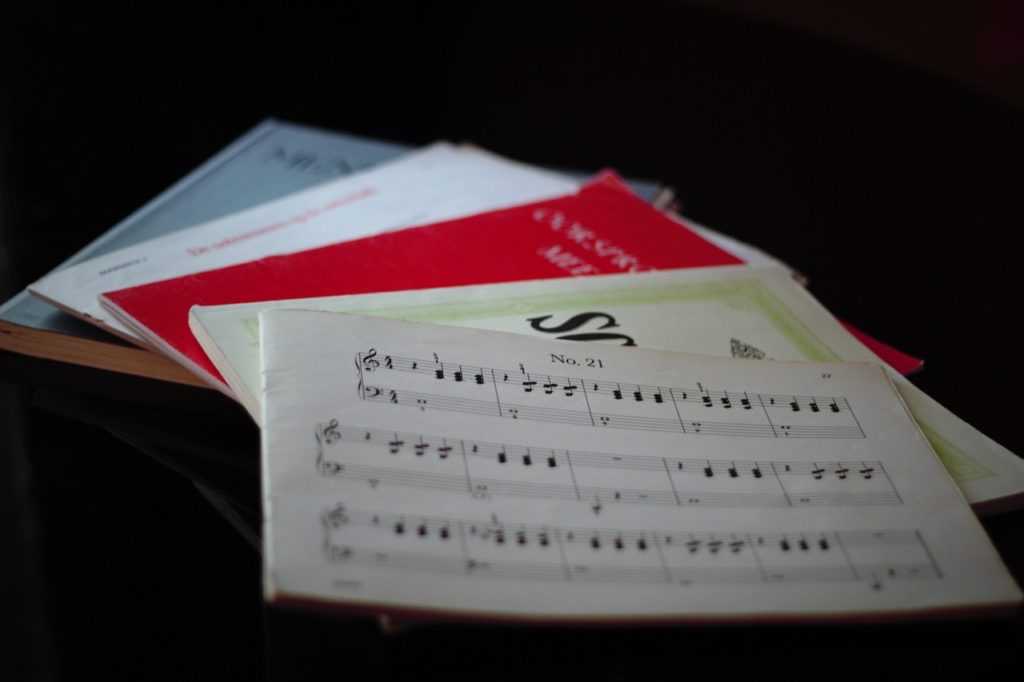Why Singles Are A Great Way To Build Your Vocal Repertoire


When you’re early on in your singing education or career, building your repertoire is an important task that you’ll need to focus on. Done well, repertoire building takes some time, and your vocal teacher can help to advise you on which songs would best help to build up both your repertoire and your skills.
Singles can be a great addition to any singer’s repertoire for a number of reasons. Here are a few things to consider when choosing the next pieces that you plan to add to your vocal repertoire.

The Importance of Your Repertoire
Your repertoire, which consists of the songs that you have studied and performed, can help to develop your skills and experience. By including songs of different genres, those written in different languages, and those with different technical aspects, you can develop yourself into a skilled and versatile singer.
But there’s another reason why your repertoire is so important: It’s a standard element that is required by colleges and conservatories, employers, and even in some audition situations.
Because your repertoire represents your experience on paper, it’s worth the effort to thoughtfully select the songs you study. After all, a future opportunity – and even a job – could depend on it.
Why You Should Choose Singles for Your Vocal Repertoire
Songs that have been written as singles offer many different benefits when selected as repertoire material.
For one, singles are easier to find! Singles are currently much more common than full-length albums, meaning you can find new singles easily and learn from a variety of songs that you might not find if you’re just looking through albums.Singles are also ideal if you’re looking to add variety to your repertoire. By mixing and matching different singles, you can touch on different music styles, vocal ranges, keys, themes, and technical aspects. When you’re looking at an album, the songs tend to all have a similar style, and they’re often about the same themes. This can make learning multiple songs off of an album tedious. Singles offer much more variety, keeping you more engaged and making the process of practicing a more enjoyable experience. Plus, you may look forward to your voice lessons even more, knowing you’ll be focusing on a song that you enjoy.

The Benefits of Including Singles in Your Repertoire
When you include singles in your repertoire, you’ll see a number of benefits because of this choice. Singles are usually simpler, since they’re designed to appeal to larger audiences. The style that singles are written in – often verse, chorus, verse, chorus, bridge, chorus – usually makes it easier to learn and remember the single, as well. The repetition of the chorus, and the similar melody of the verses, means there’s less memorization involved and can be a great way to build your confidence if you need to quickly learn a bunch of songs.
If you’re in a hurry to build your repertoire, there’s another great reason to choose to learn singles – they’re usually shorter than album songs. Singles are written to be played on the radio, so they are only about three minutes long. Songs intended to be included on an album can be longer, sometimes reaching up into the five, six, or even seven-minute mark. Because singles are shorter, you can learn them more quickly and enjoy a feeling of accomplishment sooner.
Since singles are played on the radio, they tend to become highly popular quickly. This is another benefit for singers looking to learn the songs, because they’re often available through many different online resources. Chances are that if you want to learn a popular single, you’ll have no problem in finding a variety of outlets where you can order the sheet music, view the lyrics, and listen to various recordings. These are all valuable resources as you learn the song.
Plus, if you want to improve your music theory knowledge, there’s no better way to do it than to study singles. Amazing hit singles are written with the utmost care to create intense feelings and engagement in the listener. Closely studying these singles can be an excellent lesson in music theory, helping you to learn what works in a song and why.
Getting Started with Singles in Your Repertoire
If you’re ready to expand your repertoire with singles, then chances are you can start with your favorite song from the radio. Be sure to work closely with your online vocal teacher, who can help you to select a variety of songs that will improve your musicianship and build your experience. The more singles you add to your repertoire, the closer you will be to having a full-length album of your own unique collection of songs. What a great way to create a unique repertoire that shows your creativity, versatility, and talents!
Related

Staff


Aleks
